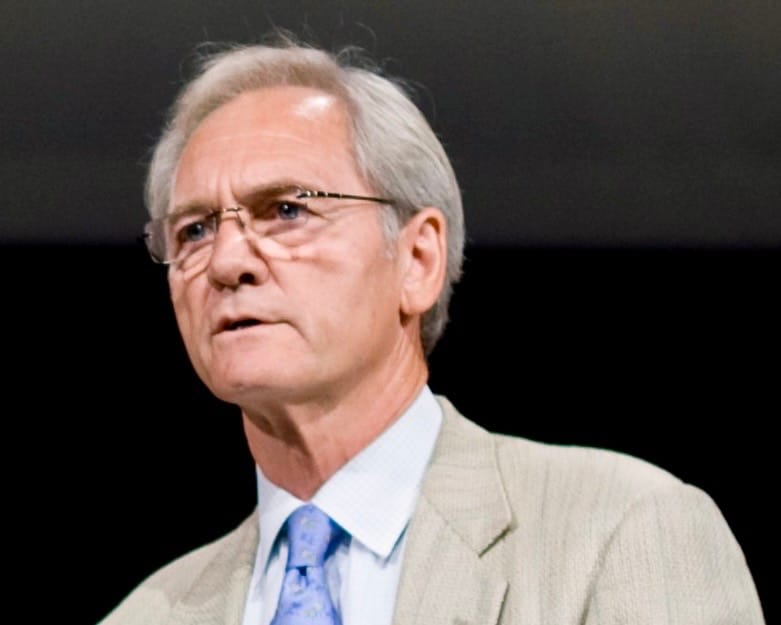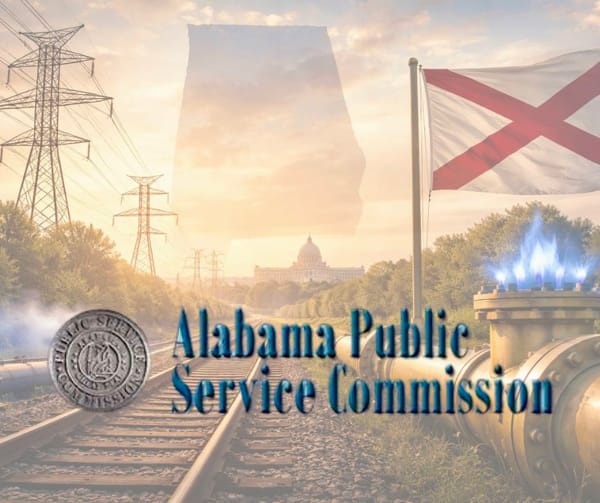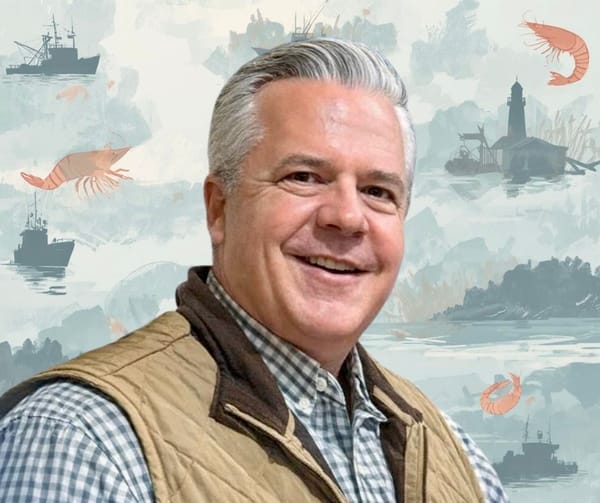House Oversight Committee to Interview Former Biden Chief of Staff—Will Don Siegelman Pardon be the Thread That Unravels the AutoPen Scandal?
Biden reportedly granted, then rescinded Siegelman’s pardon—but was he competent when he did?

The House Oversight Committee has requested an interview with President Joe Biden’s final Chief of Staff, Jeff Zients, about the alleged cover-up of Biden’s mental decline and the use of an AutoPen during the final days of Biden’s administration.
A series of internal communications has revealed a growing unease among senior officials regarding the extensive use of the AutoPen—a machine that replicates a person's signature—to authorize pardons and clemency measures. These concerns are among several that have prompted an ongoing investigation by the House Oversight Committee.
Emails obtained by Axios indicate that Chief of Staff Jeff Zients approved the use of the AutoPen for pardons on January 19, 2025, less than 14 hours before President Donald Trump's inauguration. The authorization, sent from Zients' email address, raised questions about the authenticity of the signatures on the documents. While Zients did not personally send the email, it was sent from his official account, reportedly by his aide, Rosa Po, who had access to his email account.
The Department of Justice expressed objections to the clemency process, with senior ethics official Bradley Weinsheimer criticizing the characterization of some recipients as "nonviolent," describing such claims as misleading.
White House officials reportedly resisted the repeated use of the AutoPen. Zients’ interview before the Committee will hopefully shed light on the process behind authorizing the use of the AutoPen, as well as the mental acuity of the President during Zients’ tenure as Chief of Staff.
President Biden has publicly stated that he personally made all clemency decisions. However, given the large number of pardons and commutations issued by him—4,245 people, more than any other President, more than 95% of them during his final 3 ½ months in office—have raised questions about the aged President's ability to process and comprehend the cases which he allegedly signed off on.
Of special interest to Alabamians is the case of former Governor Don Siegelman. As reported by Charlie Savage in the New York Times on July 13th, Biden approved a pardon for Siegelman on Saturday, January 18th—only to “rescind” it the next day.
As part of his interview by the Committee, Mr. Zients should be asked the following questions, specifically about Mr. Siegelman’s on-again, off-again pardon:
- Was he (Zients) present, both on Saturday when the pardon was “granted” and on Sunday, when it was “rescinded”?
- Who else was present, on both days?
- If Zients was not there, who would have been likely to be a witness both to the pardoning and rescission?
- Did President Biden sign Siegelman’s pardon personally, or was it to be signed by the AutoPen?
- Who was responsible for having the pardon signed by AutoPen? Did they follow the President's order on Saturday?
- If it was signed, by hand or AutoPen on Saturday, what happened to that document? Where is it, and who has it in their possession at this time?
- What documentation (ie, the ‘paper trail’) exists for the Saturday decision? The Sunday recision?
The answers to these questions should point the Oversight Committee towards answers to the two main questions hanging over Joe Biden’s last days in the White House:
- Was the President actually mentally capable of fulfilling the duties of his office in January, 2025?
- Who was really running the White House—and by extension, the country—if Biden was incapable of doing so?
Biden’s use of the word “rescind” implies that the pardon was granted, then withdrawn. If that is what happened, it may open yet another can of legal worms. The Pardon is, and must be, absolute. No other President can undo a pardon granted by another. Would that apply to a President changing his mind after a pardon is issued? And, given Biden’s obvious mental decline (and his demonstrably poor memory) at that time, did he even remember granting and/or rescinding Siegelman’s pardon?
That line of reasoning runs directly into the Burdick precedent. SCOTUS has already ruled on the substance, definition and process of pardons themselves. In Burdick v United States (1915), the Court held that “Acceptance, as well as delivery, of a pardon is essential to its validity; if rejected by the person to whom it is tendered, the court has no power to force it on him.” Furthermore, a pardon “carries an imputation of guilt and acceptance of a confession of it.”
Would Burdick apply when the person granting the pardon, then rescinding it, was non compos mentis at the time? Competency is ultimately a legal, not a medical determination, which further clouds the issue.
Once again, knowing who witnessed Biden’s actions that Saturday and Sunday will likely shed a great deal of light onto who was actually running the country.
In June, the House Oversight Committee sent letters to Karine Jean-Pierre, Ian Sams, Andrew Bates, and Jeff Zients demanding they appear for transcribed interviews. To date, several have been interviewed, but Mr. Zients’ interview date has not yet been set.
ALPolitics.com has been in contact with Representative Gary Palmer’s (R-AL6) office to confirm that no interview date for Mr. Zients has been scheduled. Rep. Palmer’s office has said they will notify ALPolitics.com when that interview date is set.
The Oversight Committee has set up a website that compiles all of the findings and resources from the AutoPen investigation thus far: https://oversight.house.gov/landing/the-biden-autopen-scandal/.
Among the very concerning information on that site is that Biden‘s White House physician pleaded the Fifth Amendment during his interview: “It’s clear there was a conspiracy to cover up President Biden’s cognitive decline after Dr. Kevin O’Connor, Biden’s physician and family business associate, refused to answer any questions and chose to hide behind the Fifth Amendment. The American people demand transparency, but Dr. O’Connor would rather conceal the truth. Dr. O’Connor took the Fifth when asked if he was told to lie about President Biden’s health and whether he was fit to be President of the United States,” Committee Chair James Comer (R-KY) said in a statement following O’Conner’s deposition.
The questions about Biden’s mental status and the “Pardon-palooza” of the final days represent a tangled knot of suspect actions by a person or persons as of yet unknown.
If Mr. Zients answers the above questions honestly—and does not plead the Fifth—then Don Siegelman’s pardon may be the thread that causes the whole ugly mess to unravel.
Update: shortly after the publication of this article, ALPolitics.com was contacted by Rep. Palmer‘s office and told that Mr. Zients was seen entering the Committee interview room that day (Thursday, September 18). A miscommunication caused the report to this outlet that Mr. Zients‘ interview had not yet been scheduled.
As more information from Zients’ interview becomes available, ALPolitics.com will report it.




